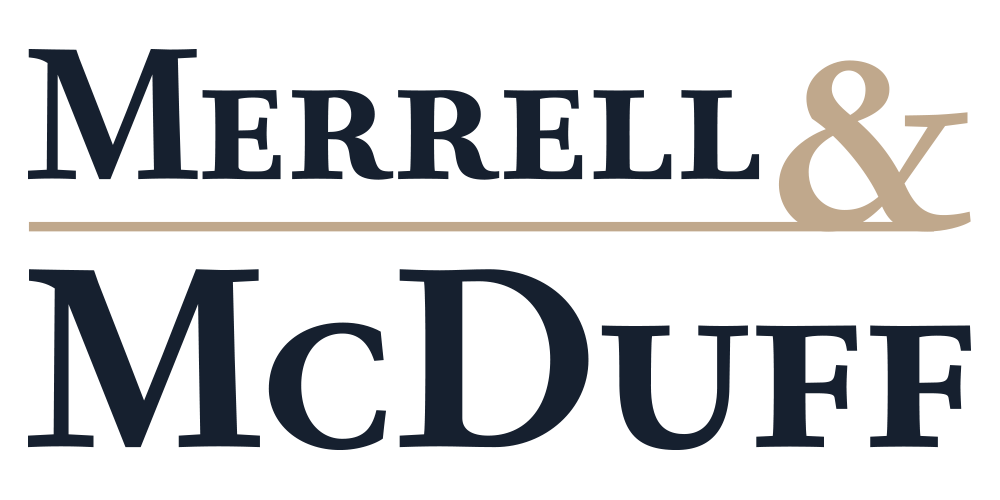
MERRELL & MCDUFF
Local Roots,
National Experience
ABOUT OUR LAW FIRM
Merrell & McDuff
Merrell & McDuff, led by Rick McDuff, continues the legacy established by Tim Merrell in 1986. With deep roots in civil litigation, corporate and business law, estate planning, and probate, our firm is grounded in trusted legal counsel and strategic planning.
We know that lawsuits and legal disputes can be overwhelming and expensive for both individuals and businesses. That’s why we focus on helping clients prevent problems before they arise through thoughtful, proactive legal guidance. When conflicts do occur, our team draws on decades of experience to guide clients through resolution—whether by negotiation, mediation, arbitration, or litigation.
At Merrell & McDuff, we’re committed to delivering practical solutions and dependable legal support every step of the way.
Business & Civil Litigation
With decades of experience, we represent clients in civil and business disputes through negotiation, mediation, arbitration, and litigation. When issues arise, we’re ready to stand by your side.
MORE INFORMATION
Corporate & Business Law
We advise businesses at every stage—from formation to succession planning. Our services include contract drafting, corporate governance, and dispute resolution to keep your operations running smoothly.
MORE INFORMATION
Estate Planning & Probate
From estate plans to asset protection, we help clients secure their financial future. Our team guides you through trusts, wills, and strategies designed to preserve wealth and minimize risk. When the time comes, we also guide our clients through the process of transferring assets to the appropriate heirs.
MORE INFORMATION
OCONEE COUNTY ATTORNEYS
Dependable Legal Support
MEET THE TEAM
Our Attorneys
At Merrell & McDuff, our attorneys bring decades of combined experience in business, financial, and legal matters. We take a client-focused approach—offering practical guidance, clear communication, and trusted representation. Whether you’re planning for the future, managing a business, or navigating a dispute, our team is here to help you move forward with confidence.




